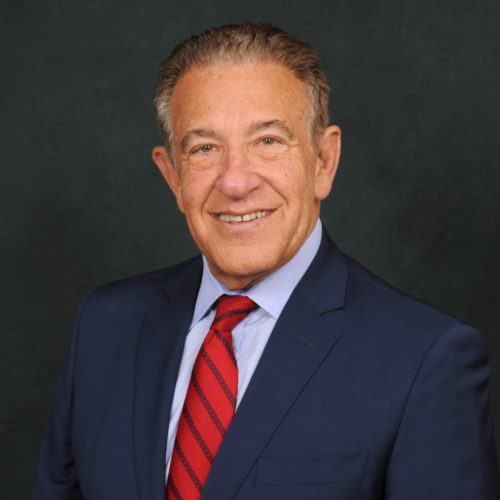MSAA features the work of many talented artists affected by multiple sclerosis as part of our annual MSAA Art Showcase. Each month we share these artists’ inspiring stories and beautiful artwork with you as our Artist of the Month. This month, we celebrate Steven Kaiser as the November Artist of the Month. Steven is from Greensboro, NC.
Continue readingTag Archives: msaa
Ask the Expert – Pain
Featuring Barry A. Hendin, MD
MSAA’s Chief Medical Officer
Question: What types of medications are prescribed for pain in MS and what types of
complementary and alternative medicine (CAM) may be helpful?
Answer: Management of pain includes but is not limited to prescription medications. Our initial goal is to assess the cause of the pain and then to try to manage the pain itself. Pain in multiple sclerosis (MS) can come from lesions in the central nervous system (CNS), which produce very specific symptoms of intermittent facial pain (called trigeminal neuralgia) or burning and itching discomfort in various parts of the body.
Continue readingWhat MS Has Taught Me
By Suzanne Marriott
Being my husband’s caregiver throughout his years of living with MS taught me a great deal. I discovered hidden internal resources and developed new skills that stretched my understanding of what I could do.
Through embracing the challenges of caregiving, I learned to trust myself to do what had to be done to care for my husband, Michael, despite my self-doubt and lack of experience. For example, in the latter stages of Michael’s disease, I learned to accomplish procedures that only an RN could comfortably do, such as administering IV medications and changing his Foley catheters while maintaining a sterile environment. As his condition worsened, Michael came to trust me more and more, and I was able to ensure that he received the right medical care and the right follow-up—from me.
Continue readingWhat MS Has Taught Me
Working within the MS community has provided me with a profound perspective on life and resilience. Each day, I witness the trials and triumphs of those living with this complex condition, and through their experiences, I have gained invaluable lessons that have reshaped my outlook on life.
The Power of Resilience: Witnessing the determination of individuals with MS has attested to the true power of resilience. Despite facing unpredictable symptoms and challenges, the strength shown by these individuals in their pursuit of a fulfilling life is nothing short of inspiring.
Continue readingThriving with MS
Living with MS can be an ordeal of its own considering the unpredictability and uncertainty that comes with having it. MS can affect mobility, independence as well as quality of life. Symptoms may greatly vary from individual to individual. Over time, it might get harder to perform regular activities. By getting diagnosed during the earlier stages of the disease and with the appropriate treatments, an individual can live a healthy and fulfilling life.
For some individuals, the symptoms may be profound while for others it might be manifest as an invisible illness as result of which people close to you may fail to understand and acknowledge the seriousness of the situation. MS can make one feel isolated and alone. Individuals with MS want to be heard and would benefit from having a close-knit support system to vent out frustrations and anxieties whether it be friends or family.
For those who have MS, ask for help when you need it. Embrace your body’s limitations. Share your experiences and stories. Empower yourself and others by being an advocate for MS. Raise awareness of the disease and make use of the multitude of resources out there to improve the lives of those with MS. Set aside time to do things that you love and make the best out of your MS.
Resilience Is Your Superpower
MS is debilitating and relentless, wreaking havoc on our bodies and minds. It is frequently a diagnosis that causes fear, confusion, and discomfort in so many ways. The first thing that I think of when I speak with a person with MS is the word resilience.
If there is one thing I have learned about people with MS, it is that they are resilient. They have learned to withstand difficulties and adapt to situations that many are unaware of. The courage those with MS show every day leaves me baffled. It takes strength to deal with the physical and “invisible” symptoms of MS, and educating ourselves and those around us about this disease is just as powerful. The MS journey is one of ups and downs, trial and error, and acceptance.
Continue readingThe Fear
By Chernise Joseph
Since it’s the spookiest of months, let me get right to the point: MS has taught me how to be afraid. To be very, very afraid. As big and as intimidating as that word can truly be, I don’t want it to come across as multiple sclerosis has simply scared me away from living as that isn’t the case at all–if anything it’s the exact opposite.
Multiple sclerosis is a funny thing, especially the sort I have. I can go weeks, months, even years, without any relapses, but the threat of them still lurks over my head like a storm cloud. What if I overdo it today and trigger a relapse? What if the weather is simply weather-y and I’m in relapse-land? What if, what if, what if.. That is what scares me the most about MS. The what ifs.
Continue readingMy Unspoken Strength
The lessons that living with MS has taught me are abundant. I have lived with this disease since I was in my very early 20s. Some of the most pivotal years of a young person’s life. I had big dreams of being a sports reporter. I did seven internships throughout my college career at Penn State University. The truth was, I was just downright hungry and would do whatever it took to be able to say, “I made it.”
My last year of college was a pretty exciting time for me. I had just finished an internship with the B1G Ten Network. The show I helped produce won an Emmy Award, and I had just landed a new gig straight out of college for an ABC affiliate in Harrisburg, PA. I was about to take on the biggest news story living in the sports and news world at that moment. Penn State was amidst a horrible scandal that rocked the nation. I was assigned to cover the courtroom news for this story. I spent eight weeks living in a trailer parked in a Walmart parking lot close to the courthouse. I was doing live shots next to CNN, Fox, ABC, and ESPN. I was on top of the world, or so I thought…
Continue readingLifelong Learning
By Stacie Prada
When the kids return to school, traffic patterns change and I may follow the school bus on my morning commute to work. There are fewer tourists in my town and fewer colleagues away on vacation. Stores and ad campaigns feature school supplies and products useful for students going back to school. “Back to School” season is a terrific annual reminder that learning doesn’t end after finishing school. I consider how much lifelong learning I’ve done and hope to attempt, the possibilities grow, and I’m motivated to plan more.
Continue readingBack to the Grind
Going back to school is filled with excitement, and possibly fear. Depending on what grade or level of schooling you’re about to enter. I know the feelings of starting a new school year but have not yet experienced it from a parent’s perspective, until now. And boy, is it tough.
As I pack up my little girl to go to her first day of daycare, I can’t help but think to myself how is she going to feel without me? Will she think I abandoned her? Will she know that I am coming back? I know every parent has a feeling of extreme guilt when dropping their child off at a place that is unknown and possibly scary to them, even if it is in their best interest. Here are a couple things I did to calm myself down, stay present, keep my thoughts organized, and most importantly STAY POSITIVE.
Continue reading





